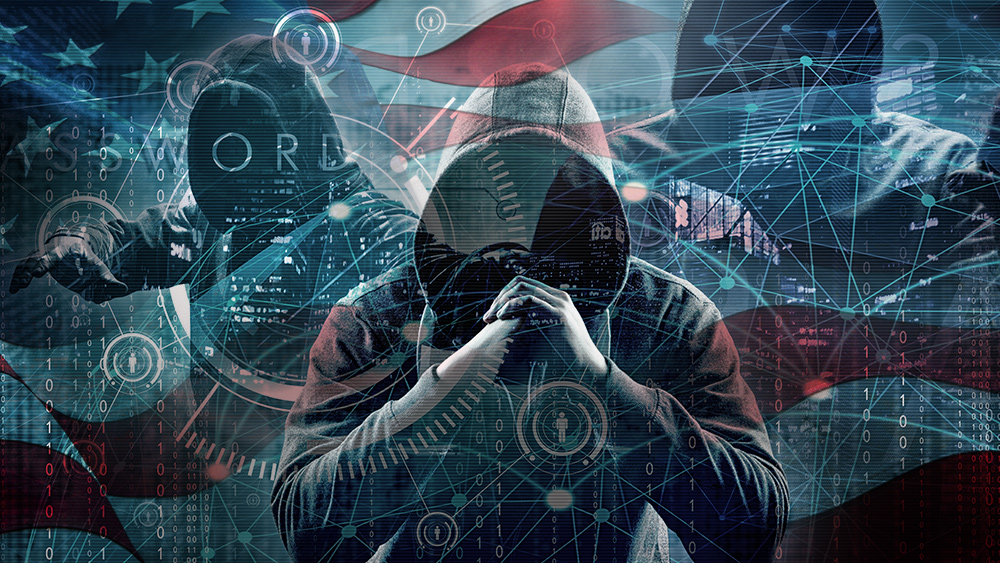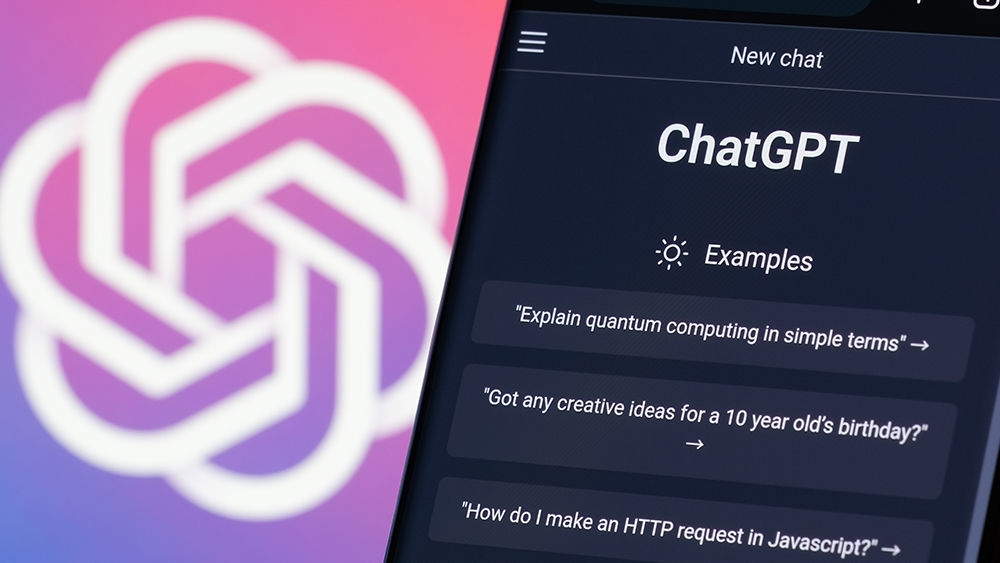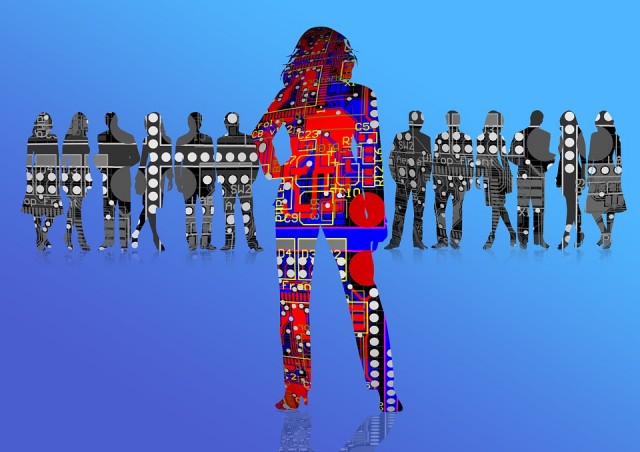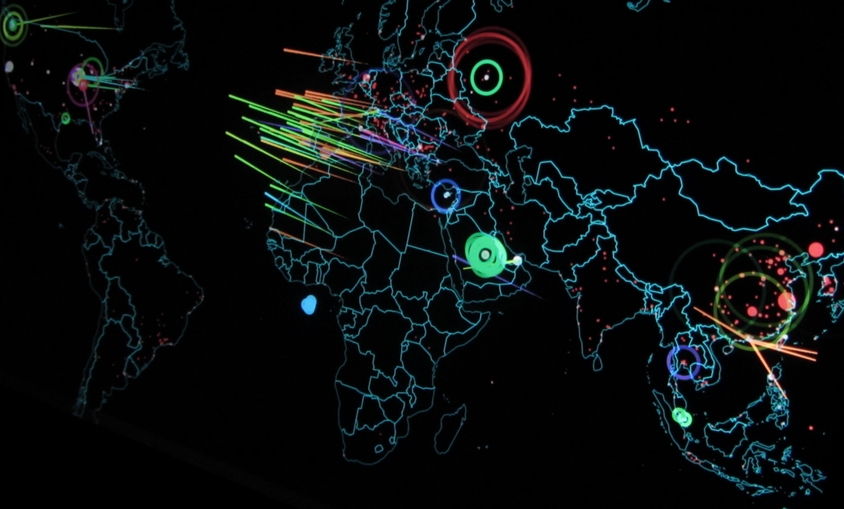DHS to use AI to target and discriminate against internet users and reroute traffic from independent media outlets
12/22/2023 / By Belle Carter

Speculations are swirling around the internet that the U.S. Department of Homeland Security (DHS) will soon require a lockdown of the internet, followed by a limited access/controlled access internet where only approved sites can be accessed. However, other analysts are theorizing that the North American internet will not be shut down, but just change the pathways using their public-private partnerships with social media and Big Tech with claims of protecting national security.
Regardless of the level of control, the blog website Last Refuge inquired why DHS is in the business of conducting widescale surveillance, monitoring and tracking of American citizens. It pointed out that the First, Fourth and Fifth Amendments to the U.S. Constitution were usurped by the 2001 Patriot Act, citing former president and vice president George W. Bush and Dick Cheney, respectively, creating the domestic surveillance system under the auspices of DHS and the Office of the Director of National Intelligence. It also pointed out that Presidents Barack Obama and Joe Biden then took that DHS surveillance system and modified it so the surveillance “only applied to their ideological enemies.”
Moreover, the artificial intelligence (AI) component of the internet surveillance system has been planned to be launched toward the end of this year. The DHS has just announced exactly that, the independent outlet also indicated. A DHS memo was issued on August 8 but not published for the general public until Sep. 15. “DHS will not use AI to improperly profile, target, or to discriminate against any individual, or entity, based on the individual characteristics identified above, as reprisal or solely because of exercising their Constitutional rights. DHS will not use AI technology to enable improper systemic, indiscriminate, or large-scale monitoring, surveillance, or tracking of individuals,” it included. (Related: Project Night Fury: Documents reveal DHS partnered with UAB to evaluate and assign social media accounts with “risk scores.”)
If the word “improper” is taken out of the text, DHS is blatantly admitting that it uses AI to profile, target and discriminate against internet users. In the second sentence, DHS admitted to currently participating in systemic, indiscriminate and/or large-scale monitoring, surveillance, or tracking of individuals. The only thing those sentences in the paragraph were trying to imply was that DHS will not allow AI to create improper outcomes within a system they outline that already exists.
DHS’ AI task force also claimed to coordinate with the Cybersecurity and Infrastructure Security Agency (CISA) on how the department can partner with critical infrastructure organizations “on safeguarding their uses of AI and strengthening their cybersecurity practices writ large to defend against evolving threats.” The article further pointed out that critical infrastructure organizations include voting systems.
DHA Secretary Mayorkas wants to hasten AI adoption
Alejandro Mayorkas, DHS secretary, emphasized back in September the need to adopt AI quickly, regardless of whether it is commercially acquired or internally developed technology. “We have got to change the procurement capabilities of a government agency to actually move quickly and nimbly, so that when we are dealing in a very dynamic environment, we can actually move with dynamism,” Mayorkas said. “I’m not suggesting moving to a sole source model, but we just have to be quick.”
Mayorkas added that DHS needs to prioritize where it will use AI, rather than attempting to adopt it across every mission and use case. A DHS report pointed to combatting both fentanyl and human trafficking as use cases that could be “accelerated and championed” across DHS. But it also suggests DHS “integrate AI/ML into as many areas of the DHS mission as possible.”
“We’re going to need to prioritize what aspect of our mission should we really double down on to harness AI because I worry about diluting our focus too much,” he further insisted. “And I really do want to demonstrate, as quickly as is responsible, how this could really be a game changer for us in advancing our mission . . . we have to pick our spots here, in my view, somewhat surgically.”
Critics observed his big emphasis on speed and getting the AI system launched into DHS surveillance, tracking and monitoring systems as quickly as possible, incidentally just in time for the 2024 elections. What’s more suspicious is that the Department of Defense (DoD) will also now conduct online monitoring operations using enhanced AI to ‘protect’ the U.S. internet from “disinformation” under the auspices of national security.
Check out Surveillance.news for more stories on how the federal government bypasses the privacy of its citizens.
Sources for this article include:
Submit a correction >>
Tagged Under:
2001 Patriot Act, AI, big government, Collusion, conspiracy, control, cyber war, deception, DHS, domestic surveillance, Fifth Amendment, First Amendment, Fourth Amendment, Glitch, independent media, internet lockdown, Mayorkas, privacy watch, propaganda, safe sites, surveillance, Tyranny, watched
This article may contain statements that reflect the opinion of the author
RECENT NEWS & ARTICLES
COPYRIGHT © 2017 COMPUTING NEWS



















